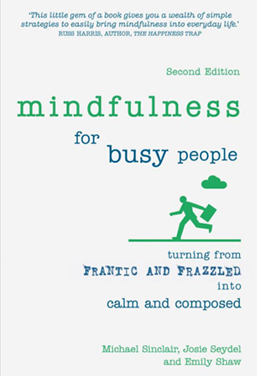Where has your mind been today? Probably a lot of places other than the here-and-now. You might have worried about the future, made plans, remembered the past with pleasure or regret, and thought about yourself a good deal: how you’re doing, what you’re like, how you compare to other people. Maybe your thoughts have all been pleasant, but probably not: most of us tie ourselves in knots, at least some of the time, with our worrying, regretting, and self-criticism. Research shows that the more our minds wander, the less happy we are. This isn’t a new problem, which is why for thousands of years people have been training their minds to be present, with what is actually happening right here, right now. This is the practice of mindfulness.
Mindfulness has been a part of most major religions (Buddhism, Hinduism, Sufi Islam, and even Judaism and Christianity) but in recent decades purely secular forms have been developed and made available to everyone. Nowadays mindfulness is taught to top athletes, schoolchildren, Members of Parliament, soldiers, business leaders, and the general public. It is used to improve performance, to enhance happiness and wellbeing, and to treat mental health issues. Mindfulness is everywhere, because it works!
So what exactly is it, and how exactly does it work? Most simply, mindfulness means knowing what is happening while it is happening. Being aware of what you can feel, see, and hear, and of what you are thinking, as opposed to being a million miles away, lost in thought. We can be mindful in any moment, and start to experience the benefits of it, just by noticing what is happening right now. How does your body feel? What can you see? What can you hear? What thoughts are passing through your mind? But if you try this you will probably find that you cannot keep it up for long, before you get lost in your thoughts again. Mindfulness goes against the usual habit of our minds, which is to wander, and so to develop it we have to practise. Some people like to practise on the go, by bringing mindfulness to daily activities like walking, doing the washing up, or even having conversations. This can be very beneficial in itself. However, we can develop a deeper level of mindfulness by setting aside some dedicated time for practice: by meditating each day. People who do this report a wide range of benefits, such as greater focus and productivity, less stress, anxiety, and anger, better sleep, greater empathy, more confidence, improved relationships, and more enjoyment of their daily activities.

You can more information about our books on mindfulness here.